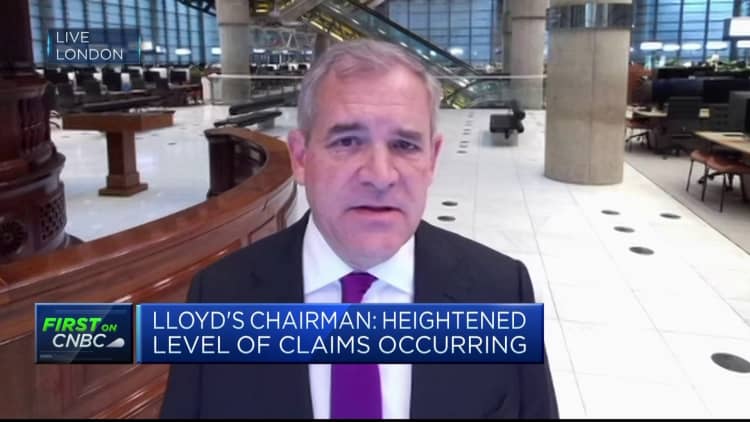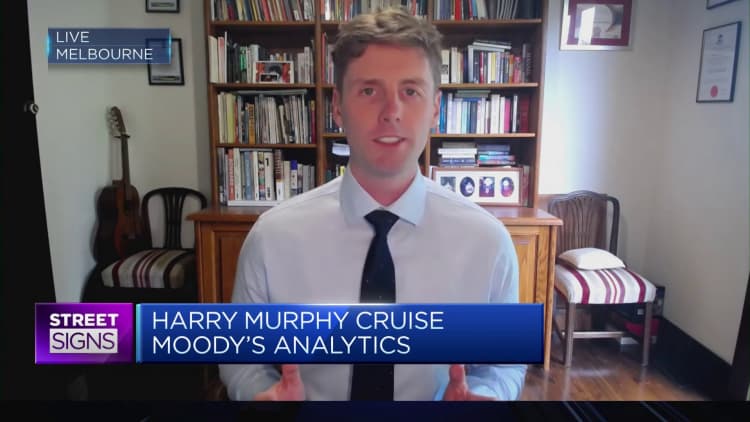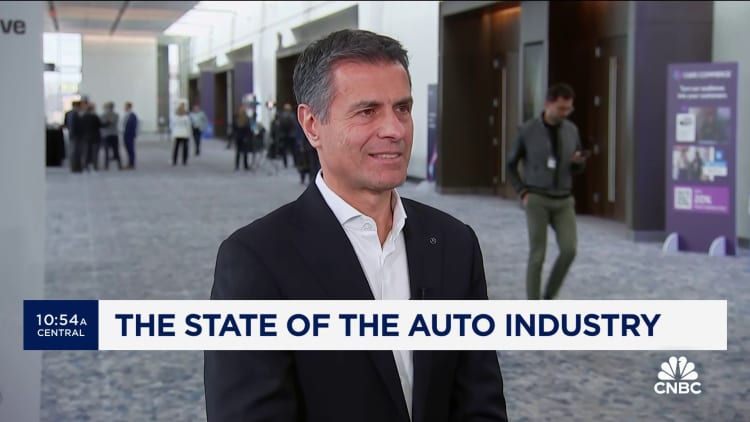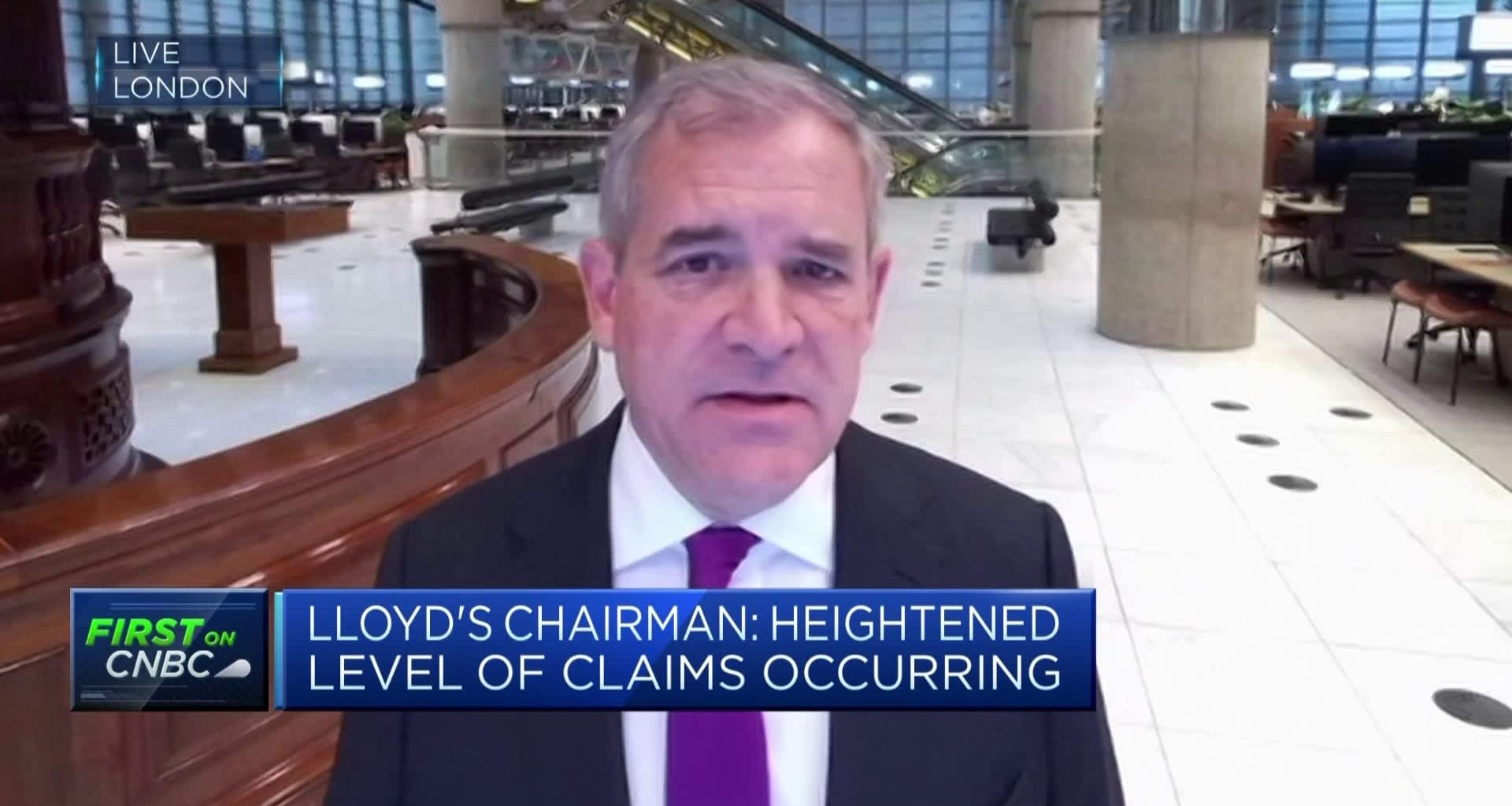Baltimore City Fire Boat 2 floats past the Dali container vessel after it struck the Francis Scott Key Bridge that collapsed into the Patapsco River in Baltimore, Maryland, U.S., on Tuesday, March 26, 2024.
Bloomberg | Bloomberg | Getty Images
The collapse of a major Baltimore bridge and its knock-on effects could result in the biggest-ever marine insurance payout, the chair of insurance giant Lloyd’s of London said on Thursday.
Analysts have forecast that insured losses from the disaster would amount to a figure in the single-digit billions, after a huge cargo ship crashed into the Francis Scott Key Bridge on Tuesday. Six people were presumed dead.
“We’re beginning to deploy resources in anticipation of this being a very substantial claim for the industry. And for the Lloyd’s market, it’s going to take some time for for the complexity of the situation to unravel,” Bruce Carnegie-Brown told CNBC’s “Squawk Box Europe.”
“So, [it’s] very early days to call a number. I don’t at this point anticipate that it’s outside our realistic disaster scenario planning. It feels like a a very substantial loss, potentially the largest-ever marine insured loss, but not outside parameters that we plan for.”
Carnegie-Brown added that, while there would clearly be claims for the ship, cargo and the bridge, it is “second-order impacts” that would become “substantial.”
“A lot of business is going to be interrupted, supply chains are going to be interrupted by ships that are both trapped inside the port and of course, ships that were trying to gain access to the port that no longer can, and those second order effects will take some time to work through,” he said.

Baltimore is the 11th biggest port in the U.S. and the country’s busiest for the import and export of autos and light trucks. Supply chain operators are scrambling to minimize the impact on trade.
Morningstar DBRS analysts said in a Wednesday note that insured losses could total between $2 billion and $4 billion, depending on the length of time that the port is blocked. Such a figure would surpass the current highest amount, which was paid out from the capsizing of the Costa Concordia cruise ship in 2012.
Various insurance policies are likely to be triggered across marine liability and hull, property, cargo and business interruption.
“Despite the hefty insured losses, we expect they will remain manageable for the insurance industry as they will involve a large and diversified pool of well capitalized insurers and reinsurers,” Morningstar said.
Barclays puts the potential insurance claims between $1 billion and $3 billion.

The Singapore-flagged container vessel was chartered by Danish shipping giant Maersk and was carrying its customers’ cargo, but it was operated by charter vessel company Synergy Group. Early reports suggest the ship lost power before hitting the bridge.
Investigations will be carried out by authorities in both Singapore and the U.S. to establish legal liability, as part of a complex process that could take months or years.
Maersk will have had liability cover as the charterer, rather than as the operator of the vessel, David Osler, shipping and commodities principal analyst at Lloyd’s List Intelligence, told CNBC earlier this week.
Autos impact
Several global autos firms have said they are assessing the impact of the tragedy on their operations and expect to have to reroute trade, therefore extending some delivery times. Many say they do not expect major disruption at present.
Barclays analysts said in a Wednesday note that German autos manufacturers BMW, Mercedes and Volkswagen are most exposed, as European imports accounted for 40% to 50% of U.S. sales in recent years.
BMW told CNBC that the incident would not impact material supplies for its U.S. plant, and that the company was in contact with its logistics partner regarding imports. Volkswagen said its port operations were located on the seaboard side of the bridge and would not be impacted, but noted that it may face trucking delays. Mercedes noted that other entry ports, such as Brunswick, Georgia, would help ease import pressures.

“While there will be near term disruptions in auto imports and exports, I’m confident that Customs and Border Protection, regional ports, and terminal operators will work closely with the auto industry to identify optimal shipping alternatives until the Port of Baltimore resumes vessel operations,” Mitch Merriam, vice president of borders and maritime security at K2 Security Screening, told CNBC by email.
“The Port of Baltimore is going to suffer in the short term, but plans are already underway to divert and accommodate the additional traffic at other east coast ports, including Philadelphia, Norfolk, Savannah and Charleston. All of them can handle cars and light trucks.”
The port handles a wide range of goods including sugar and gypsum and is used by retailers such as Home Depot, Ikea and Amazon.
— CNBC’s Ganesh Rao and Lori Ann LaRocco contributed to this story.
Read More: World News | Entertainment News | Celeb News
CNBC










